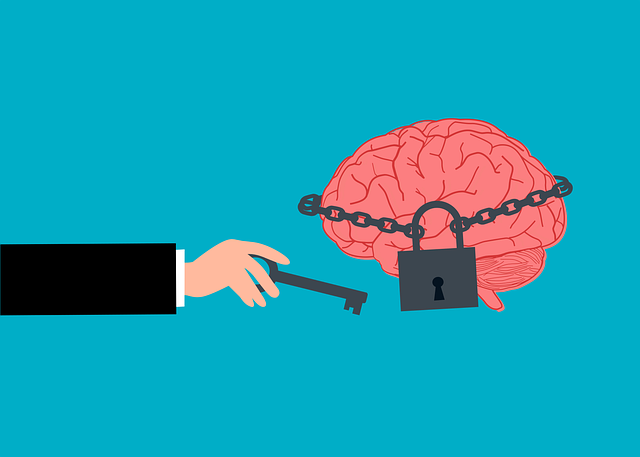Mental health professionals in Louisville Gambling Therapy settings face complex ethical challenges and intense emotional demands from helping clients with addiction. To cope, self-awareness exercises promoting mindfulness and emotional regulation are crucial for building resilience. Integrating robust risk management strategies, including continuous assessment, tailored plans, coping skills teaching, clear safety protocols, and open communication, ensures a supportive environment that empowers clients to overcome gambling issues while mitigating risks. Additionally, participating in public awareness campaigns helps combat stigma and educates the Louisville community about gambling addiction's complexities.
Mental health professionals in Louisville, especially those specializing in gambling therapy, face unique risks. This article guides practitioners through essential risk management planning, tailored to the specific challenges of the Louisville Gambling Therapy setting. We explore understanding these risks, integrating effective risk management strategies into daily practice, and building resilience through continuous risk assessment. By adopting best practices, professionals can mitigate potential harm and enhance patient care in this dynamic field.
- Understanding Risks Specific to Mental Health Professionals in Louisville's Gambling Therapy Setting
- Integrating Risk Management Strategies into Practice: A Step-by-Step Guide
- Building Resilience and Mitigating Harm: Best Practices for Continuous Risk Assessment
Understanding Risks Specific to Mental Health Professionals in Louisville's Gambling Therapy Setting

Mental health professionals working in Louisville’s Gambling Therapy settings face unique challenges and risks. Beyond general workplace stressors, they encounter complex ethical dilemmas, intense emotional demands, and potential exposure to traumatic stories of addiction and financial ruin. The nature of gambling therapy requires a delicate balance between building trust with clients and maintaining professional boundaries, which can be especially taxing for professionals navigating their own personal experiences or struggles with addictive behaviors.
In this environment, fostering self-awareness through exercises that promote mindfulness and emotional regulation becomes paramount. Applying mind over matter principles allows therapists to cultivate resilience, maintain objectivity, and offer effective support to clients. Moreover, actively participating in public awareness campaigns development can help combat stigma associated with gambling addiction while promoting understanding of its complexities among the broader Louisville community.
Integrating Risk Management Strategies into Practice: A Step-by-Step Guide

Integrating Risk Management Strategies into your practice as a mental health professional is essential for providing safe and effective care. Here’s a step-by-step guide tailored for Louisville Gambling Therapy professionals, focusing on fostering a resilient environment while ensuring patient well-being:
1. Assess Risks: Begin by identifying potential risks unique to gambling therapy. This might include emotional vulnerability, past traumas, or impulsive behaviors. Regularly review and update this assessment as your caseload evolves. Incorporate tools like risk assessment questionnaires (e.g., Suicide Risk Assessment) for comprehensive evaluation.
2. Develop Individualized Plans: Based on the assessment, create personalized risk management plans. This involves tailoring strategies to address specific client needs. For instance, clients with a history of trauma may benefit from Trauma Support Services and Communication Strategies to foster trust and open dialogue.
3. Implement Coping Skills Development: Equip your clients with effective coping skills to manage risks. Teach them techniques to regulate emotions, problem-solve effectively, and respond adaptively during challenging situations. Regularly reinforce these skills through therapy sessions, ensuring they have tools to navigate distress without resorting to harmful behaviors.
4. Establish Safety Protocols: Define clear guidelines for managing crises. This includes de-escalation techniques, emergency contacts, and steps for referring clients to specialized services when needed. Ensure your practice has protocols in place for handling self-harm or suicide ideation, following best practices from Louisville Gambling Therapy experts.
5. Foster Open Communication: Encourage clients to openly discuss their feelings, fears, and experiences. Create a safe, non-judgmental environment where they feel comfortable sharing vulnerabilities. Regular communication allows you to proactively manage risks, providing timely interventions and support.
Building Resilience and Mitigating Harm: Best Practices for Continuous Risk Assessment

Building resilience is a cornerstone of effective risk management planning for mental health professionals. By integrating continuous risk assessment into daily practice, Louisville Gambling Therapy specialists can proactively identify and mitigate potential harm. This involves regular monitoring of client progress, environmental factors, and personal stress levels. Through such assessments, practitioners gain valuable insights into emerging risks and vulnerabilities, enabling them to adjust treatment strategies accordingly.
Additionally, fostering strong communication strategies and burnout prevention techniques among healthcare providers is essential. Encouraging open dialogue between therapists and clients enhances early detection of distressing behaviors or thoughts. Equally important are coping skills development programs that equip both professionals and their patients with effective tools to navigate challenging situations. These proactive measures collectively contribute to a more robust risk management framework, ensuring the well-being of mental health practitioners while they support their clients’ journeys towards recovery.
Mental health professionals working in Louisville’s gambling therapy setting face unique risks. By understanding these specific challenges, integrating comprehensive risk management strategies, and adopting best practices for continuous risk assessment, therapists can build resilience and mitigate potential harm. This proactive approach ensures the well-being of both professionals and clients, fostering a safer and more effective therapeutic environment in Louisville Gambling Therapy settings.










